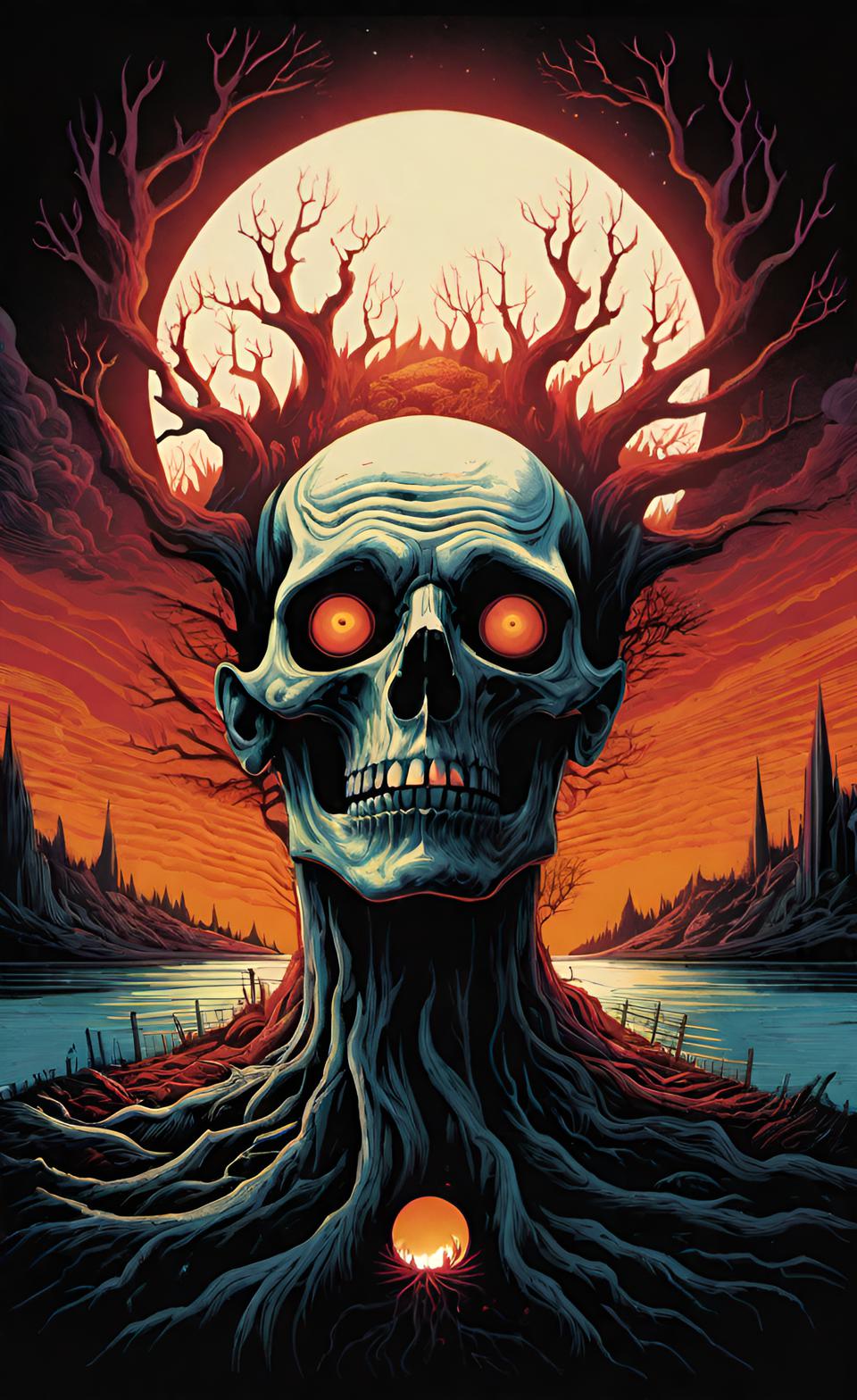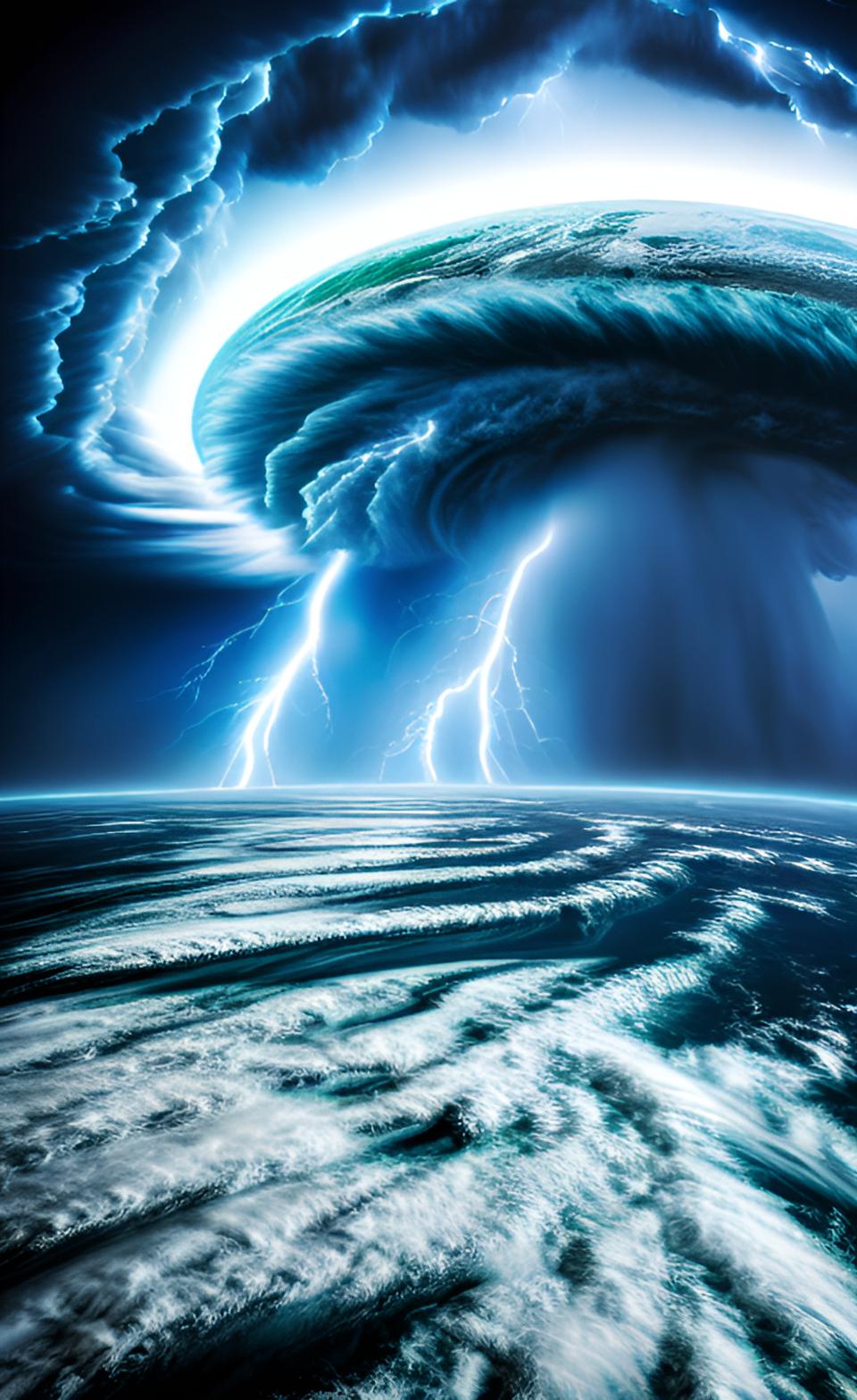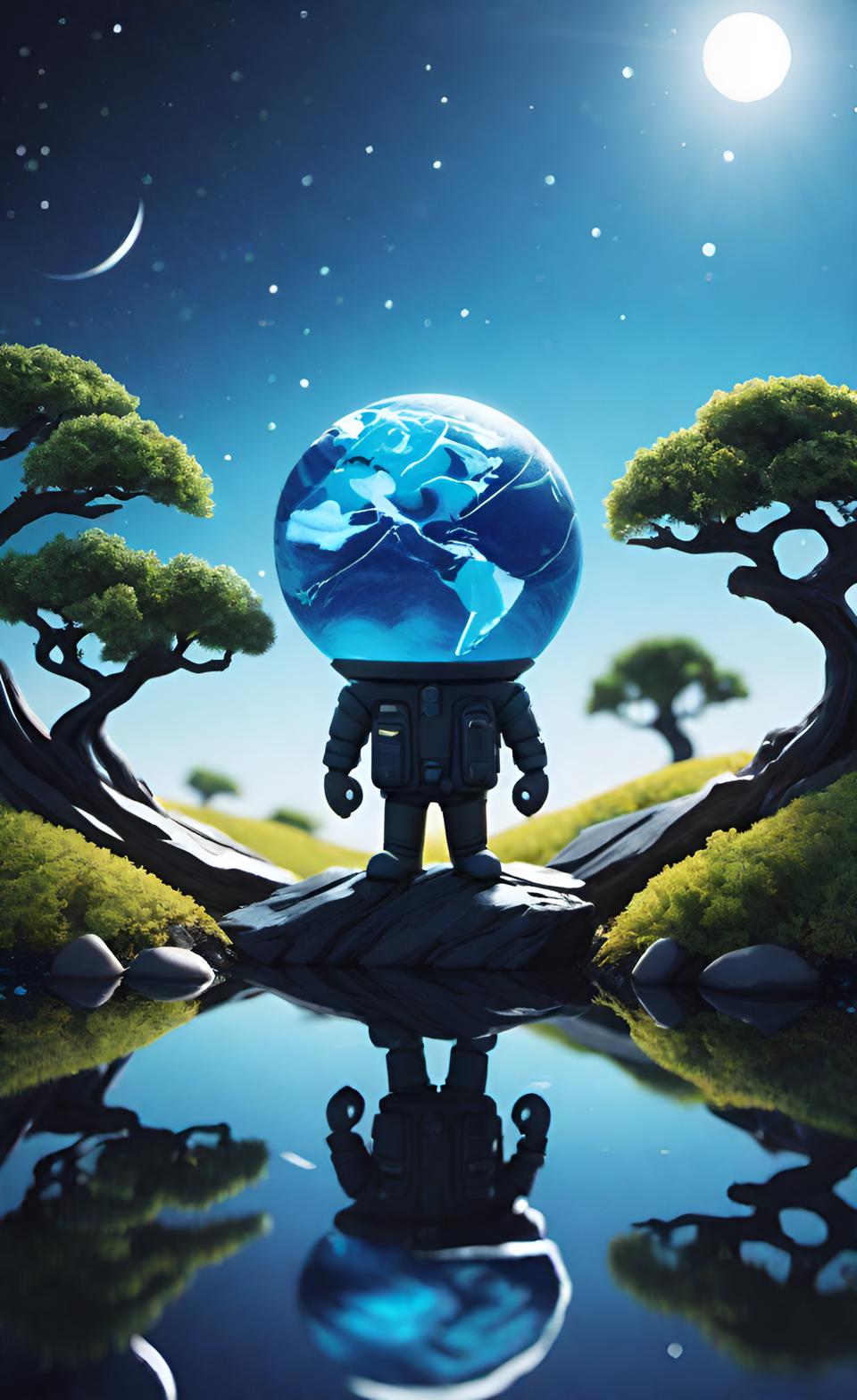- Air Homepage
- Global Warming
- How Does Global Warming Happen
How Does Global Warming Happen? The Forces and Surprising Truths.
Climate change has been a hot topic at times. How does global warming happen? Many think the Earth's temperature has changed over time because of human activities like burning fossil fuels, but others think it's natural.
Global Warming Debate: Truths and Uncertainties 🌡️What's causing global warming, human activity or natural cycles, and why do experts still disagree? Discover the complex science behind greenhouse gases and clouds that make forecasting our planet's future so hard.
Extreme weather events have been linked to climate change. For instance, a Pakistani senator attributed heatwaves, forest fires, flash floods, glacier lake bursts, and an abnormally heavy monsoon all occurring in one year, 2022, to climate changes.
 Where's the Ecological Tipping Point?
Where's the Ecological Tipping Point?We might also look at snowfall variations in the US. Over the last century, we've seen more extreme snowstorms in the east. In the second half of the 20th century, there were twice as many major snowstorms as in the first. We know weather can be unpredictable and intense sometimes. Researchers study how these extreme weather events happen and what might be changing them. And there is much disagreement as we'll see next.
Scientists specialize in studying how gases in our atmosphere affect Earth's temperature and are especially interested in carbon dioxide and water vapour. Some think carbon dioxide is more important than water vapour when it comes to greenhouse gases, but others strongly believe water vapor is more important.
There's something fascinating about clouds. Under different conditions, they can actually cool the Earth by reflecting sunlight back into space during daytime but trapping heat at night can counter that effect. Additionally, we don't know how the amount, distribution, and character of clouds will change as the planet's temperature changes. It's still unclear whether global warming will make clouds disappear or grow.
My goal here is to clear up misunderstandings about global warming, our activities, and the arguments about its impacts. I also show how some have tried to explain and predict climate change. You know...like How does global warming happen?
How does global warming happen? Blame the man.
Anthropogenic global warming (AGW) is caused by human activities like burning organic fuels. Reports commonly indicate that Earth's temperature has risen by 1.5 degrees Fahrenheit since 1850. Some people think human activities are causing the warming, but not everyone, for instance, Patrick Moore (co-founder of Greenpeace) says some of it is natural.
The enhanced greenhouse effect may trap more heat in the Earth's atmosphere. Since understanding our planet's climate is complex, and researchers are still learning how it works, there's still a lot of research going on about this mechanism.
 The horror of anthropogenic warming
The horror of anthropogenic warmingClimate change discussions have many perspectives. According to climate scientists, the earth's surface and atmosphere have warmed and cooled many times throughout history, long before industrialization ever occurred. Others are skeptical about climate change's effects on our lives and planet.
Some studies show people's opinions about climate change are often influenced by their political motives and beliefs rather than just scientific evidence. Experts continue to research and discuss the effects of climate change, so we need to understand that nuances come into play here.
The climate is complex and can't be explained by modifying a few inputs. UN climate panel says human activities have contributed to global warming over the past 50-100 years, but there are still a lot of uncertainties. As a result, scientists keep learning and investigating, which is exciting because we're constantly learning more about our planet's climate system.
Disagreements over the past several decades have resulted from the disparity amongst those who have studied it extensively. Climate change experts say the Earth has gotten warmer over the last century, and humans are mostly to blame. Generally, it goes like this:
- About 1-2 degrees Fahrenheit have been added to Earth's temperature,
- This warming could hurt people, animals, and plants,
- Almost all costs should go towards reducing greenhouse gases.
Heated debates and Earth's changing climate
We've seen heated arguments about this topic before, with some people feeling people who disagree with them are unfairly treating them or aren't allowing them to express their views. There are strong feelings about climate change, and scientific debates can get messy.
We know our planet's climate is complex, and we don't know everything about it. Here are a few things that might trigger debate:
- Earth's climate has changed a lot,
- The Sun and Earth's natural cycles affect temperature changes,
- Life on Earth depends on carbon dioxide (CO2),
- Humans don't cause climate change as much as people think.
 Climate skepticism clashes with science
Climate skepticism clashes with scienceSolar activity and Earth's own cycles are at least partially responsible for the changes, rather than just humans. We don't fully understand how our planet's climate works yet, which is the familiar message here.
- Humans have been affecting Earth's temperature for decades.
- Back in 1956, Toronto physicist Gilbert Plass wrote a study suggesting human activities like heavy industry could be warming the planet.
- At a time when other scientists wondered if particles in the air were cooling the Earth, geochemist Wallace Broecker coined the term "global warming" in the 1970s.
- By 1979, the National Academy of Science was serious about carbon dioxide's impact on climate.
- Our climate will definitely change if carbon dioxide levels keep rising, said meteorologist Jule Charney.
The goal of this study was to understand how human activities affect our planet's climate. They asked important questions about the Earth and how humans affect it. We started using the words "climate change" and "global warming" interchangeably when the media got involved, glossing over scientific thoroughness.
Changing Truths of Our Planet
People have also made predictions about climate and weather, but it ain't easy and some have been wrong. Here are a couple:
 Failures teach us a lot
Failures teach us a lotPeople worried about global cooling in 1970, then global warming, while other weather experts say climate change is just part of nature.
That brings us back to our theme about predicting weather and climate over time. There have been a lot of predictions for how does global warming happen made by scientists and newspapers over the years, but not all of them have come true.
Scientists learn all the time, and what they thought was true in the past might not be true now. Just like detectives solve mysteries, scientists study our planet's climate and try to understand it, knowing that their understanding might change.
My bit here covers the science, controversies, and natural mysteries shaping climate change...
The enhanced greenhouse effect, the role of human activities like burning fossil fuels, and natural cycles and solar activity. There's an intense debate about water vapor versus carbon dioxide, clouds in a warming world, as well as myths about cooling versus warming, and political motives. This emotional, knowledge-packed experience won't disappoint.
Do you have concerns about air pollution in your area??
Perhaps modelling air pollution will provide the answers to your question.
That is what I do on a full-time basis. Find out if it is necessary for your project.
Have your Say...
on the StuffintheAir facebook page
Other topics listed in these guides:
The Stuff-in-the-Air Site Map
And,
Thank you to my research and writing assistants, ChatGPT and WordTune, as well as Wombo and others for the images.
OpenAI's large-scale language generation model (and others provided by Google and Meta), helped generate this text. As soon as draft language is generated, the author reviews, edits, and revises it to their own liking and is responsible for the content.



New! Comments
Do you like what you see here? Please let us know in the box below.